Doss, a Seventh Day Adventist, refused to carry a gun, eat meat, or work on the Sabbath. His Commanding Officer thought he was unstable and unsuitable for military service and tried unsuccessfully to boot him from the military.
But Doss was a man of great faith dedicated to serving his country who soon won the respect of his unit for his bravery and courage under fire going to any length to treat, care for, and rescue his wounded comrades. Time after time, Doss fearlessly charged into open areas filled with flying shrapnel and machine gun and sniper bullets to rescue the wounded.
During the battle for Okinawa in April 1945, Doss’s Company B was ordered to scale a 400-foot cliff, honeycombed with caves, tunnels, and gun emplacements. Doss told his Lieutenant that the company should pray before the assault. Doss’s company engaged the enemy and won the battle with no fatalities and only one minor injury. When Headquarters asked how Company B had pulled off the assault without losing a single man, the official US Army Report read: “Doss Prayed.”
On May 5, the enemy attacked Company B from every direction. The company fell back to the cliff’s base. Only the dead and wounded from Company B, the Japanese, and Doss remained on top. Doss dodged rifle and machine gun fire and mortar shells for five hours while he tended to the wounded, and lowered each soldier in a make-shift rope harness down the cliff to safety. He single handedly saved the lives of 75 men in Company B. His Medal of Honor citation reads:
He was a company aid man when the 1st Battalion assaulted a jagged escarpment 400 feet (120 m) high. As our troops gained the summit, a heavy concentration of artillery, mortar and machinegun fire crashed into them, inflicting approximately 75 casualties and driving the others back. Pfc. Doss refused to seek cover and remained in the fire-swept area with the many stricken, carrying all 75 casualties one-by-one to the edge of the escarpment and there lowering them on a rope-supported litter down the face of a cliff to friendly hands.
On May 2, he exposed himself to heavy rifle and mortar fire in rescuing a wounded man 200 yards (180 m) forward of the lines on the same escarpment; and 2 days later he treated 4 men who had been cut down while assaulting a strongly defended cave, advancing through a shower of grenades to within 8 yards (7.3 m) of enemy forces in a cave’s mouth, where he dressed his comrades’ wounds before making 4 separate trips under fire to evacuate them to safety.
On May 5, he unhesitatingly braved enemy shelling and small arms fire to assist an artillery officer. He applied bandages, moved his patient to a spot that offered protection from small arms fire and, while artillery and mortar shells fell close by, painstakingly administered plasma. Later that day, when an American was severely wounded by fire from a cave, Pfc. Doss crawled to him where he had fallen 25 feet (7.6 m) from the enemy position, rendered aid, and carried him 100 yards (91 m) to safety while continually exposed to enemy fire.
On May 21, in a night attack on high ground near Shuri, he remained in exposed territory while the rest of his company took cover, fearlessly risking the chance that he would be mistaken for an infiltrating Japanese and giving aid to the injured until he was himself seriously wounded in the legs by the explosion of a grenade. Rather than call another aid man from cover, he cared for his own injuries and waited 5 hours before litter bearers reached him and started carrying him to cover. The trio was caught in an enemy tank attack and Pfc. Doss, seeing a more critically wounded man nearby, crawled off the litter; and directed the bearers to give their first attention to the other man. Awaiting the litter bearers’ return, he was again struck, by a sniper bullet while being carried off the field by a comrade, this time suffering a compound fracture of 1 arm.
With magnificent fortitude he bound a rifle stock to his shattered arm as a splint and then crawled 300 yards (270 m) over rough terrain to the aid station. Through his outstanding bravery and unflinching determination in the face of desperately dangerous conditions Pfc. Doss saved the lives of many soldiers. His name became a symbol throughout the 77th Infantry Division for outstanding gallantry far above and beyond the call of duty.
But Doss was a man of great faith dedicated to serving his country who soon won the respect of his unit for his bravery and courage under fire going to any length to treat, care for, and rescue his wounded comrades. Time after time, Doss fearlessly charged into open areas filled with flying shrapnel and machine gun and sniper bullets to rescue the wounded.
During the battle for Okinawa in April 1945, Doss’s Company B was ordered to scale a 400-foot cliff, honeycombed with caves, tunnels, and gun emplacements. Doss told his Lieutenant that the company should pray before the assault. Doss’s company engaged the enemy and won the battle with no fatalities and only one minor injury. When Headquarters asked how Company B had pulled off the assault without losing a single man, the official US Army Report read: “Doss Prayed.”
On May 5, the enemy attacked Company B from every direction. The company fell back to the cliff’s base. Only the dead and wounded from Company B, the Japanese, and Doss remained on top. Doss dodged rifle and machine gun fire and mortar shells for five hours while he tended to the wounded, and lowered each soldier in a make-shift rope harness down the cliff to safety. He single handedly saved the lives of 75 men in Company B. His Medal of Honor citation reads:
He was a company aid man when the 1st Battalion assaulted a jagged escarpment 400 feet (120 m) high. As our troops gained the summit, a heavy concentration of artillery, mortar and machinegun fire crashed into them, inflicting approximately 75 casualties and driving the others back. Pfc. Doss refused to seek cover and remained in the fire-swept area with the many stricken, carrying all 75 casualties one-by-one to the edge of the escarpment and there lowering them on a rope-supported litter down the face of a cliff to friendly hands.
On May 2, he exposed himself to heavy rifle and mortar fire in rescuing a wounded man 200 yards (180 m) forward of the lines on the same escarpment; and 2 days later he treated 4 men who had been cut down while assaulting a strongly defended cave, advancing through a shower of grenades to within 8 yards (7.3 m) of enemy forces in a cave’s mouth, where he dressed his comrades’ wounds before making 4 separate trips under fire to evacuate them to safety.
On May 5, he unhesitatingly braved enemy shelling and small arms fire to assist an artillery officer. He applied bandages, moved his patient to a spot that offered protection from small arms fire and, while artillery and mortar shells fell close by, painstakingly administered plasma. Later that day, when an American was severely wounded by fire from a cave, Pfc. Doss crawled to him where he had fallen 25 feet (7.6 m) from the enemy position, rendered aid, and carried him 100 yards (91 m) to safety while continually exposed to enemy fire.
On May 21, in a night attack on high ground near Shuri, he remained in exposed territory while the rest of his company took cover, fearlessly risking the chance that he would be mistaken for an infiltrating Japanese and giving aid to the injured until he was himself seriously wounded in the legs by the explosion of a grenade. Rather than call another aid man from cover, he cared for his own injuries and waited 5 hours before litter bearers reached him and started carrying him to cover. The trio was caught in an enemy tank attack and Pfc. Doss, seeing a more critically wounded man nearby, crawled off the litter; and directed the bearers to give their first attention to the other man. Awaiting the litter bearers’ return, he was again struck, by a sniper bullet while being carried off the field by a comrade, this time suffering a compound fracture of 1 arm.
With magnificent fortitude he bound a rifle stock to his shattered arm as a splint and then crawled 300 yards (270 m) over rough terrain to the aid station. Through his outstanding bravery and unflinching determination in the face of desperately dangerous conditions Pfc. Doss saved the lives of many soldiers. His name became a symbol throughout the 77th Infantry Division for outstanding gallantry far above and beyond the call of duty.







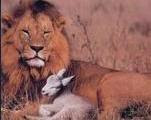










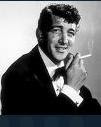

















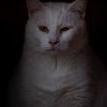


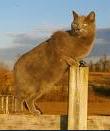




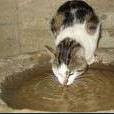





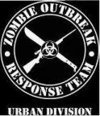







No comments:
Post a Comment